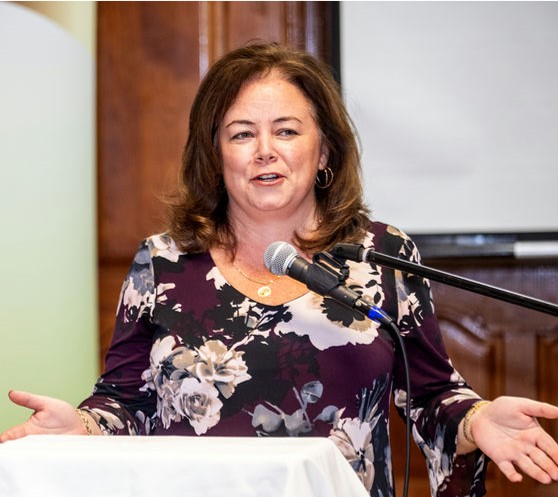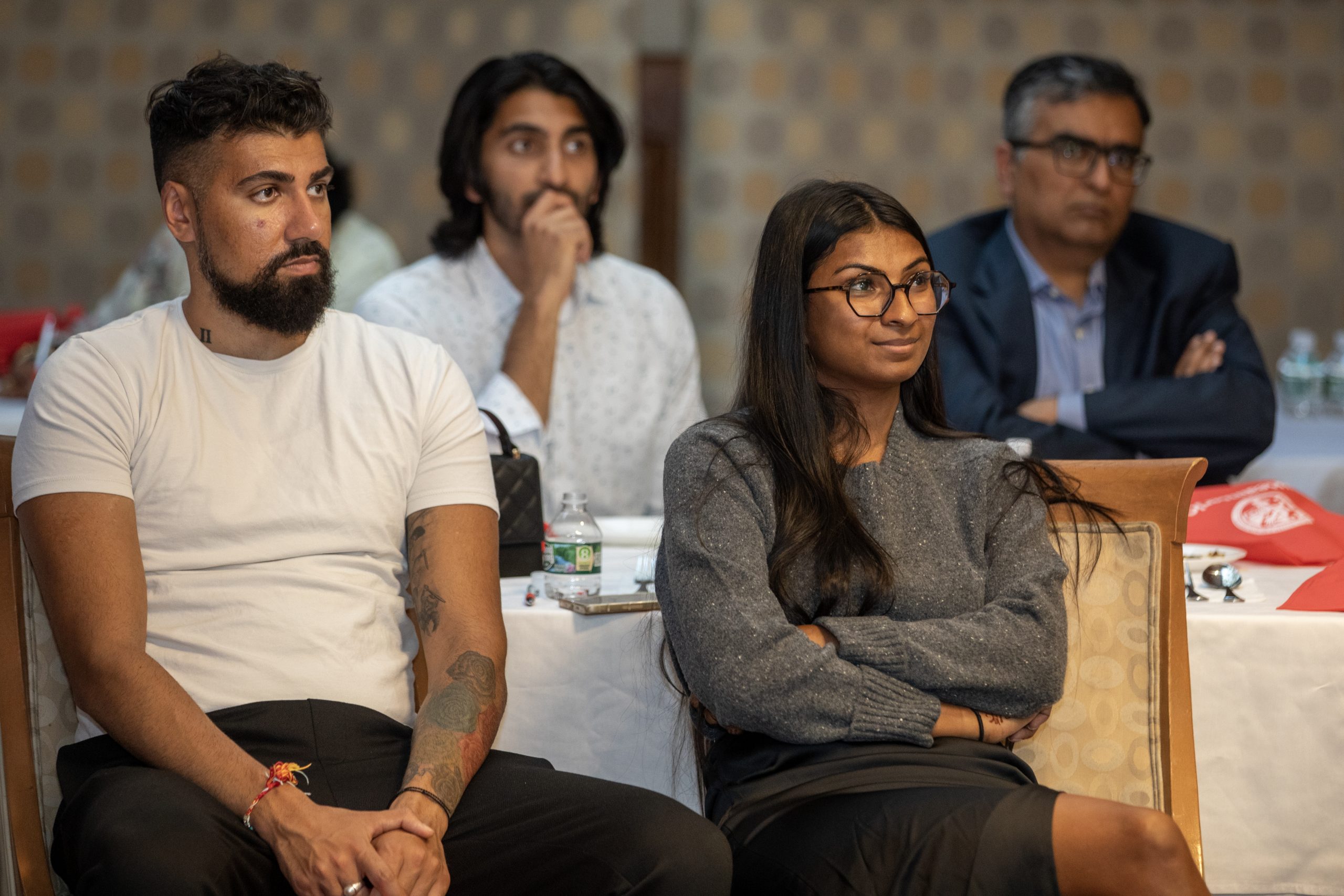Addressing the Stigma of Substance Abuse

The South Asian Mental Health Initiative and Network (SAMHIN) addresses a broad range of mental health issues through education, engagement, and empowerment. The South Asian community in New Jersey is comprised of individuals with ancestry from India, Pakistan, Sri Lanka, Nepal, Bhutan, Bangladesh, and the Maldives.
In the South Asian community, stigma and shame are major impediments to seeking mental health services. Since its inception in 2014, SAMHIN has sought to eliminate stigma related to mental illness and addiction while improving access to culturally competent care. One major health concern affecting the South Asian community is substance use/abuse, specifically related to alcohol. On par with the general population since the pandemic, South Asians have experienced an increase in substance use/abuse, and many of those individuals have not consistently sought out treatment.
HealthierJC + SAMHIN
SAMHIN believes that Building a Culture of Health means increasing awareness, improving mental health literacy, decreasing health disparities, and cultivating healthy lifestyles in the South Asian community. Mental health outreach and education are augmented by the following tools:
- A Helpline that offers free, confidential phone/email support for those looking for mental health guidance, information, and referrals.
-
A free online directory of South Asian psychiatrists, psychologists, and social workers that can provide culturally and linguistically appropriate care.
SAMHIN’s focus on the mental health needs of the South Asian community aligns with the HealthierJC mission to ensure all cultures represented in the Jersey City mosaic have equal and culturally meaningful access to mental health resources. Both SAMHIN and HealthierJC understand the interconnection between mental health intervention, physical health, and community safety, particularly in a post pandemic urban environment.

How was the Mini-Grant Used?
 The 2023 HealthierJC mini-grant funded a free SAMHIM Substance Use Workshop at the Vaibhav Restaurant Banquet Hall in Jersey City. During the workshop, experts provided an overview of common substances used and usage statistics, dispelled myths, and identified risk factors. They also discussed the role of shame, stigma and trauma on substance use, and provided an array of resources available in New Jersey. HealthierJC actively participated and enlisted Jersey City Health Officer Paul Bellan-Boyer, who spoke on overdose prevention, handed out Narcan canisters to all attendees, and explained how to properly administer it.
The 2023 HealthierJC mini-grant funded a free SAMHIM Substance Use Workshop at the Vaibhav Restaurant Banquet Hall in Jersey City. During the workshop, experts provided an overview of common substances used and usage statistics, dispelled myths, and identified risk factors. They also discussed the role of shame, stigma and trauma on substance use, and provided an array of resources available in New Jersey. HealthierJC actively participated and enlisted Jersey City Health Officer Paul Bellan-Boyer, who spoke on overdose prevention, handed out Narcan canisters to all attendees, and explained how to properly administer it.

Following the presentations, a Q&A session was conducted for participants to directly engage with the panel of experts. A resource guide handout was also distributed, and testimonies were shared by someone living with a substance use problem, and a family member of someone struggling with substance use.
Twenty-nine individuals attended the Substance Use Workshop, primarily from Ward C. Pre and post workshop surveys indicated that participants improved their knowledge of substance use/abuse within the South Asian community. According to their feedback, numerous individuals were encouraged to advocate for themselves and others, and they were less inclined to permit historical stigma to impede their efforts to address substance addiction challenges.
Making a Difference…
“The workshop allowed community members to overcome shame and stigma and to access
helpful resources and compassionate care, so they are not suffering alone.”
— Vasudev N. Makhija, MD
 In 2015, SAMHIN launched the first South Asian Alcoholics Anonymous (AA) meeting in New Jersey, “which continues today as weekly support to those struggling with addiction. Today, this group, called the Global Gratitude Group AA, meets twice a week and functions independently following AA guidelines.”
In 2015, SAMHIN launched the first South Asian Alcoholics Anonymous (AA) meeting in New Jersey, “which continues today as weekly support to those struggling with addiction. Today, this group, called the Global Gratitude Group AA, meets twice a week and functions independently following AA guidelines.”
A South Asian resident suffering from alcoholism finds an AA group that shares his culture and empathizes with that culture’s unique challenges. What makes this program different is that it “provides a culturally-competent approach to AA, with group sessions and materials made available in multiple South Asian languages.”
The workshop was inspired by a collaboration with Jersey City resident Riaz Wahid, who had witnessed how substance abuse was impacting South Asians. He was seeking a way to help those who, “because of stigma and shame, suffer in silence.”
Makhija noted that facilitators create a safe and nonjudgmental environment in which participants can express their personal struggles with addiction. “It gives us great satisfaction to address this sensitive topic in the South Asian community and to give people the tools they need.”
For more information, visit the South Asian Mental Health Initiative and Network (SAMHIN) at https://samhin.org/.
